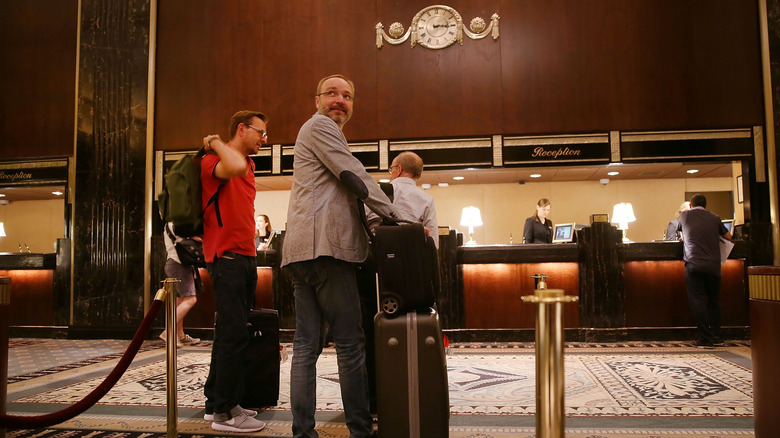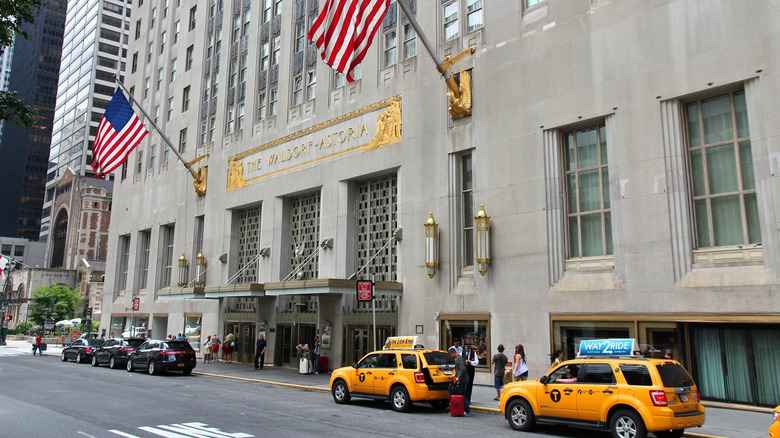
It often surprises people to learn that some well-known brands in the United States are owned by companies from the People’s Republic of China (PRC). Notably, Smithfield Foods, the largest U.S. supplier of bacon, ham, and sausages, and the Waldorf Astoria are among them. In September 2014, Hilton Worldwide agreed to sell Manhattan’s Waldorf Astoria to the Beijing-based Anbang Insurance Group for $1.95 billion, marking a record price for a single U.S. hotel at that time, as reported by Forbes. With 1,413 spacious guest rooms, this equates to approximately $1.38 million per room, which was $220 million more than the Cosmopolitan of Las Vegas, purchased by Blackstone for $1.73 billion just five months earlier.
The grand Art Deco landmark in New York City has hosted every U.S. president since Herbert Hoover and even briefly served as the United Nations’ first headquarters. After the sale, Hilton signed a 100-year contract to continue managing the hotel. This deal instilled greater confidence in China (and Anbang); other Chinese buyers, including state-backed insurers and sovereign wealth funds, followed Anbang’s lead, targeting prime U.S. properties. Within two years, Anbang agreed to pay around $6.5 billion for Strategic Hotels & Resorts’ 16 luxury venues, which included the JW Marriott Essex House in New York and San Diego’s Hotel del Coronado.
Anbang’s Fraud and Embezzlement Case

Anbang’s rapid expansion into global markets attracted government scrutiny. In February 2018, China’s banking and insurance regulator intervened and took control of the company for 18 months. Officials stated that the takeover was necessary due to illegal management activities that could severely threaten the company’s solvency. A subsequent investigation revealed approximately $12 billion in hidden debts from off-balance-sheet transactions.
In 2017, Chinese authorities detained Anbang’s founder, billionaire Wu Xiaohui. He was detained in June 2017, tried in Shanghai, and sentenced on May 10, 2018, to 18 years for fund-raising fraud and embezzlement. The court ordered the confiscation of 10.5 billion yuan (around $1.6 billion) in assets, and China’s regulator indicated that Anbang accumulated approximately 65 billion yuan (about $10 billion) in unapproved liabilities.
These legal challenges delayed Anbang’s takeover of the Waldorf Astoria. The hotel closed on March 1, 2017, for renovations—transforming parts into condos and updating the rest—but repeated setbacks have postponed the reopening to 2025 under new management. Additionally, security concerns arose in June 2015, a year after Anbang finalized its deal. The U.S. State Department ended its decades-long lease on the presidential suite and relocated diplomats to other Midtown hotels due to fears that ties to the Chinese government could compromise secure communications.
The State of Waldorf Astoria in 2025

Recall that after Anbang purchased the Waldorf Astoria for $1.95 billion in 2014, Hilton continued managing the hotel under a 100-year agreement. With Hilton still at the helm, Anbang announced an extensive renovation. The hotel closed on March 1, 2017, for what was initially a four-year, $1 billion update.
Architects Skidmore, Owings & Merrill devised a plan to preserve signature Art Deco spaces — such as the Park Avenue lobby, Peacock Alley, and the Grand Ballroom — while reconfiguring the 1,413 rooms into 375 modernized hotel suites and 375 ultra-luxury condos. The package includes amenities like a lap pool, spa, residents-only lounge, and private restaurant. Rising construction costs have since pushed the budget toward $2 billion. Progress slowed when China’s regulators seized Anbang in 2018, transferring its U.S. assets, including the Waldorf Astoria, to state-owned Dajia Insurance.
Funding was frozen, and completion timelines extended. The project finally regained momentum in late 2023, and by February 2025, the first condo owners began moving in. Agents report that about half the units are already under contract. Hilton is now accepting reservations for stays beginning in September 2025, when the Waldorf is expected to reopen as a hybrid condo-hotel, reviving its Art Deco grandeur while adapting to a new era of mixed-use luxury, where an Airbnb might be seen as a more appealing option than booking a hotel room.






